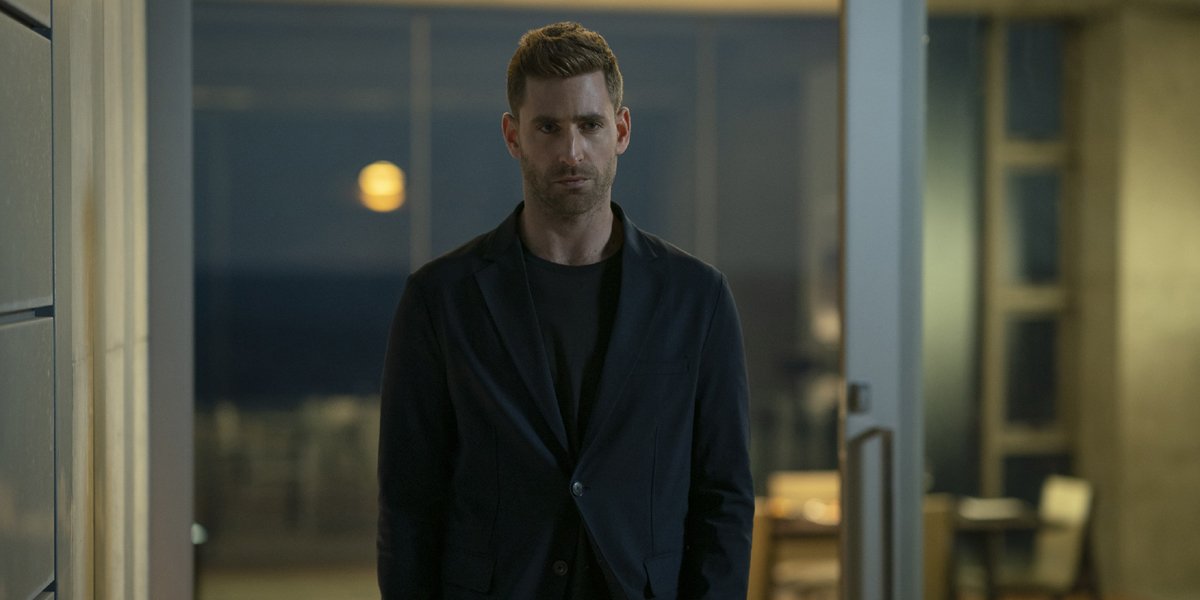How The Invisible Man’s Oliver Jackson-Cohen Found The Mad Mental Space Of The Titular Villain

Leigh Whannell’s The Invisible Man takes a different tactic with its titular character in that he is the first in the franchise not to be a central protagonist, but still his supporting part makes him no less fascinating. Adrian Griffin is a bona fide psychopath who also happens to be a genius in the field of optics, and when he puts his mind to doing something – such as terrorizing and gaslighting his estranged wife, Cecilia (Elisabeth Moss) – he’s able to accomplish some horrific things.
The material gave actor Oliver Jackson-Cohen plenty to chew on as he was accessing the mad mental space of the character both prior to and during production on The Invisible Man, and earlier this month I had the opportunity to chat with him about it at the film’s Los Angeles press day:
In The Invisible Man, we primarily get to know Adrian Griffin from the perspective of Elisabeth Moss’ Cecilia, and the image that she paints of him following her escape from his clutches and after his subsequent “death” isn’t exactly a positive one. He was both emotionally and physically abusive in his attempt to control every aspect of her life – and as the movie’s story illustrates, her actually leaving his control winds up pushing him over the edge and leads him to use his most incredible invention for sinister purposes.
This is actually another way in which this new version of The Invisible Man deviates from previous incarnations of the eponymous monster. In James Whale’s 1933 film and its sequels, the scientist characters are relatively normal (albeit ambitious) people who suffer from increasing madness as a side-effect of their experiments. In Leigh Whannell’s take, the egg produces the chicken instead of the chicken producing the egg, metaphorically speaking, as it’s Adrian Griffin’s serious mental issues that lead him to try and disappear.
In his preparation for playing the character, Oliver Jackson-Cohen decided to do a great deal of research into why a person like Adrian would act the way that he does, and what he ended up discovering both amazed and disturbed him. For the actor, it was really all about the antagonist’s egotism and narcissism that leads him to act like he does in The Invisible Man. Said Jackson-Cohen,
What was really interesting was doing an awful lot of research into personality disorder, and into narcissism. I saw this really interesting, well, it's actually a really disturbing interview with this woman that had been in this relationship with a narcissist, and she was saying that the worst thing for a narcissist... If you leave them, the rage and revenge that comes with it is incredible. Because it's to do with, 'You hurt me! How dare you hurt me!' That for me was the driving force of why Adrian does what he does.
Audiences everywhere will have the chance to experience the terror of The Invisible Man when the film hits theaters this weekend. Go buy a ticket (you really should – the film is excellent), and then be sure to head back here to CinemaBlend, as we have more interview content, features, videos, and more coming your way in the next few days and weeks.
CINEMABLEND NEWSLETTER
Your Daily Blend of Entertainment News

Eric Eisenberg is the Assistant Managing Editor at CinemaBlend. After graduating Boston University and earning a bachelor’s degree in journalism, he took a part-time job as a staff writer for CinemaBlend, and after six months was offered the opportunity to move to Los Angeles and take on a newly created West Coast Editor position. Over a decade later, he's continuing to advance his interests and expertise. In addition to conducting filmmaker interviews and contributing to the news and feature content of the site, Eric also oversees the Movie Reviews section, writes the the weekend box office report (published Sundays), and is the site's resident Stephen King expert. He has two King-related columns.










